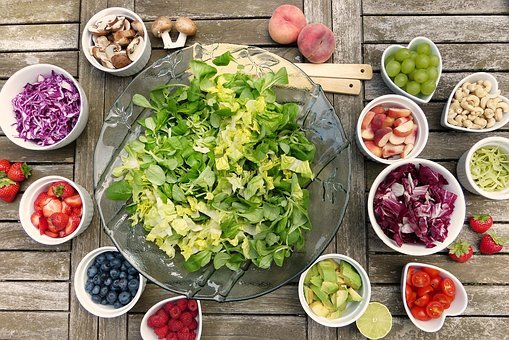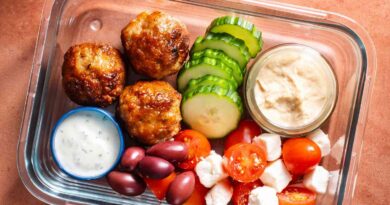Started Gyming? See Here What All You Need to Focus on Your Diet With
Did you just start your fitness journey? Then this is the post that you should be reading right now. If you are a fitness enthusiast, visit the gym regularly. However, it is equally important to focus on your diet to achieve a healthy physique.
Certain things could become complicated when it concerns your nutrition. Moreover, it is evident that nutrition is essential to your progress at the gym. Eating the right food gives you the energy to exercise well and maintain the desired physique. Lean proteins, quality carbs, fluids, and heart-healthy fats are ideal for a proper diet. So, what you eat and what you don’t ultimately determine the outcome of your workout.
Without further delay, read the content to know the things you must focus on in your diet.
- Consume Soy Foods
Currently, soy-based food has gained much traction among vegans and vegetarians. A protein-rich food is essential for those looking for alternatives to animal-based foods. Soy foods contain poly-unsaturated and mono-unsaturated fats that may support a heavy workout routine. Moreover, soy milk can be a great low-calorie content alternative for those focused on losing weight. Also, soya foods have a high-biological value. They are the only plant-based protein that contains all the nine essential amino acids for enhancing metabolism and promoting cell proliferation to improve exercise performance and recover muscle.
Eat A Proper Breakfast
Make it a routine to wake up early to have breakfast at least an hour before working out if you exercise first thing in the morning. Fuel up yourself well enough before exercising. Consuming carbs before gyming might enhance your performance and enable you to perform longer or more intensely. When you are exercising, you might feel dizzy or lethargic if you don’t eat.
Always remember to consume a light breakfast or at least sip on something such as a sports drink if you want to work out within an hour after eating. Choose carbs to get energy for exercising.
Good breakfast options include:
- Whole-grain cereals or bread
- Juice
- Low-fat milk
- Yogurt
- A banana
Also, remember that if you drink coffee in the morning, having a cup before working out is generally acceptable. Also, be aware that you run the danger of having an upset stomach if you consume food or beverage for the first time before working out.
Boost Your Fruit and Vegetable Intake
Vegetables and fruits are rich in natural vitamins, fiber, minerals, and other essential nutrients. Your body requires all these nutrients to function properly. In addition, they are also low in fat and calories. The United States Department of Agriculture recommends that you include more veggies and fruits with every meal regularly. Choose different colored vegetables and fruits to get all the essential minerals, antioxidants, and vitamins they offer. For snacks, carry dried fruits while working out and keep raw veggies in your refrigerator.
Calculate Calories
When working out, your dietary plans mainly focus on how many calories you must consume daily. For instance, moderately active people may consume 1200 or 1800 calories. Nowadays, you will come across various free sites and apps that let you calculate the calorie content you must consume according to your activity level and how much you should eat to maintain or lose weight.
You may find BMI calculators, calorie calculators, and other tools on several applications. You may use this to determine your daily calorie and nutritional requirements. Comparing the results from the calculator with your food diary might be illuminating. It offers a quick and easy method to keep track of the calories in the food you consume while on the go!
Snack Well and Drink Up
The majority of people can consume a small snack before and during exercise. Act in your own best interests. While eating a snack before working out is unlikely to offer you an energy boost, it can stabilize your blood sugar levels and minimize disorienting hunger pangs. Energy bars, low-fat granola bars, yogurt, peanut butter sandwiches, etc., are healthy snacks.
Remember to keep yourself hydrated. To avoid dehydration, you must drink enough fluids before, during, and after exercise. As per the American College of Sports Medicine, you should consume two to three cups of water before working out, half to one cup every 15 to 20 minutes while working out, and two to three cups afterward for each pound you lose.
Weigh and Measure Your Food
Measuring your food could initially be a pain for you, but slowly you’ll get used to it. It will help you understand the foods that are filling and those that aren’t. This will enable you to make better dietary choices. You can even purchase a food scale that helps to measure the grams and ounces of food. Moreover, a measuring cup set or spoons will help you measure the food portions.
The simplest way to set the food portions is to use the measuring cup. Using this, you can measure the set portion into one of your preferred bowls or cups. This way, you will know how much food fits into your bowl and what half or one cup of food looks like.
Don’t Eat the Wrong Foods
Avoid consuming foods that come in packaged containers, and also read their ingredient label. Typically, processed meals are high in salt, sugar, and preservatives. Ignore the packaging’s front-facing advertising and start comparing labels. Words like “natural” and “healthy” often conceal how detrimental some meals are to your heart and body weight. If you must eat packaged items, look for names of “real food” present. Better still, reserve processed meals for times when you aren’t able to prepare a meal or as a time saver.
Wrapping Up
You’ll likely understand which meals offer you maximum energy and which have negative consequences as you start settling into an active lifestyle. The secret is to develop bodily awareness and strike a balance between what feels right and what’s healthy for you by keeping in mind the tips mentioned above.



